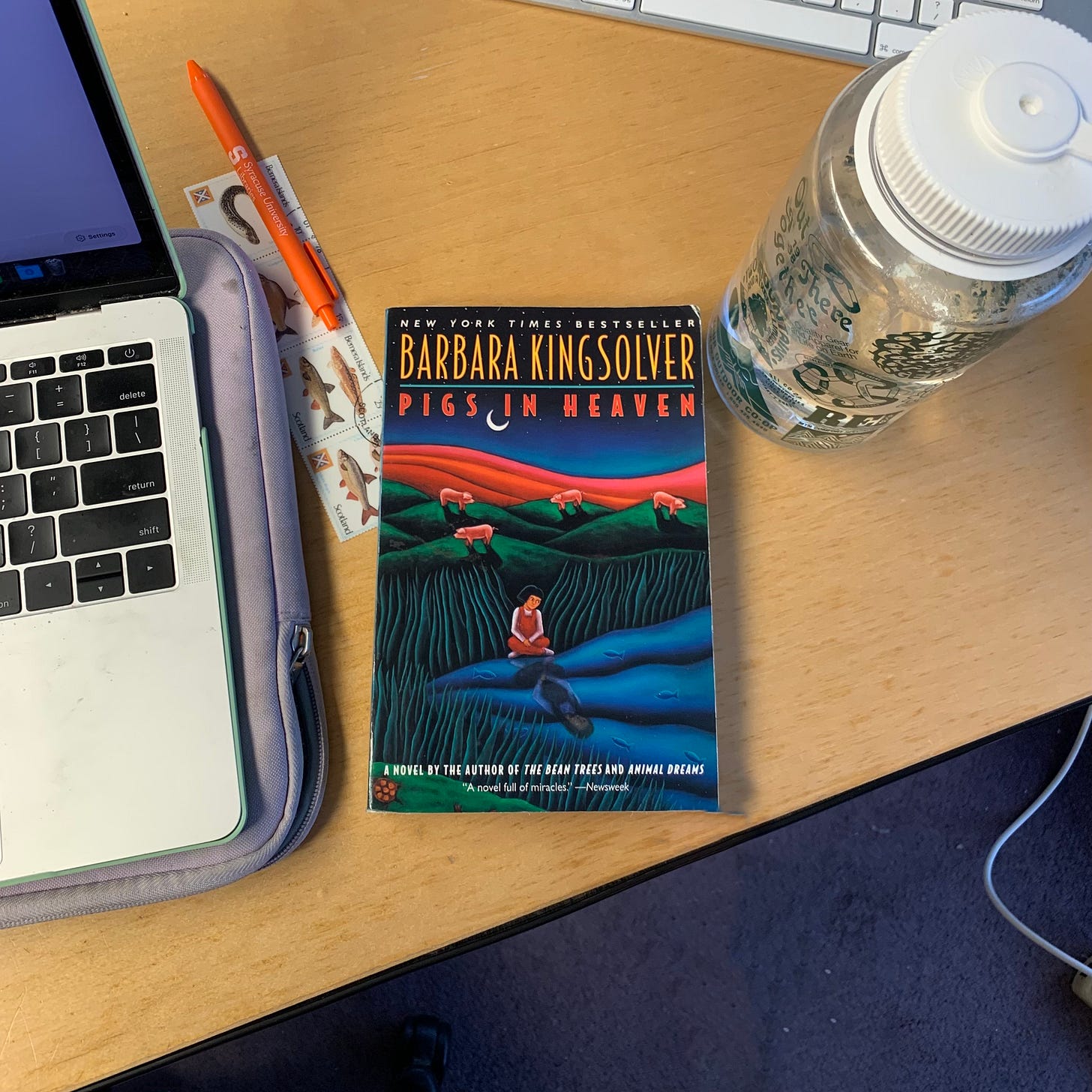After finding out that Barbara Kingsolver’s Demon Copperhead won the Pulitzer last year, I realized that I had to read more Kingsolver as soon as possible. In high school, I read The Poisonwood Bible and it gave me chills.
Pigs In Heaven is the sequel to The Bean Trees, one of Kingsolver’s first critically acclaimed books. I read this one before The Bean Trees by accident, but it can be read as a standalone story about a Cherokee child and her white adopted mother, and whether she belongs with her new family or her tribe.
Kingsolver deftly approaches the legal issue of the book with compassion for every character. Rather than shying away from contradictions and intricacies of the emotions involved, she focuses on them.
I really admire Kingsolver’s characterization. She knows how to write witty people without making them impossibly funny, and she lets her characters have honest, human thoughts during important moments without ruining those moments.
At its core, this is a book about family — both chosen and biological — and what family means to us. The novel touches on the idea of a family without men multiple times, and as someone who was raised in a family without men, that idea resonated with me.
I texted my mom and my sister a picture of the page when I got to this section of dialogue:
“‘Seems like we’re doomed to be a family with no men in it.’
‘Could be worse, you could have a family with no women in it, like I grew up in.’
‘Now that’s true, that would be worse.’”
The various mother-daughter relationships in the book are all based around a deep, intrinsic connection. The daughters are independent but committed to the people they love. It’s beautiful.
Although it celebrates mothers and daughters, the book also makes a commentary that traditional Western ideas of family and community are flawed. Kingsolver explains, both explicitly and through her plot, the Cherokee approach to family in Heaven, Oklahoma.
She describes the idea that family is not just your immediate relatives, but your entire community. After reading about the love and warmth in the tribe, small nuclear family units feel ridiculous. Why would we restrict the love in our lives to just the people that live in our house?
I had one really strange experience with this book that had nothing to do with its plot — the characters’ names kept mirroring names of people in my life! One of my best friend’s unusual last names, Thibodeau, showed up, as well as my boyfriend’s last name. I started thinking I had gotten trapped in a parallel reality.
Whether the book sent me to a parallel universe or not, I thoroughly enjoyed this read. Any book that serves as a reminder of how much I love my family is a good one.



